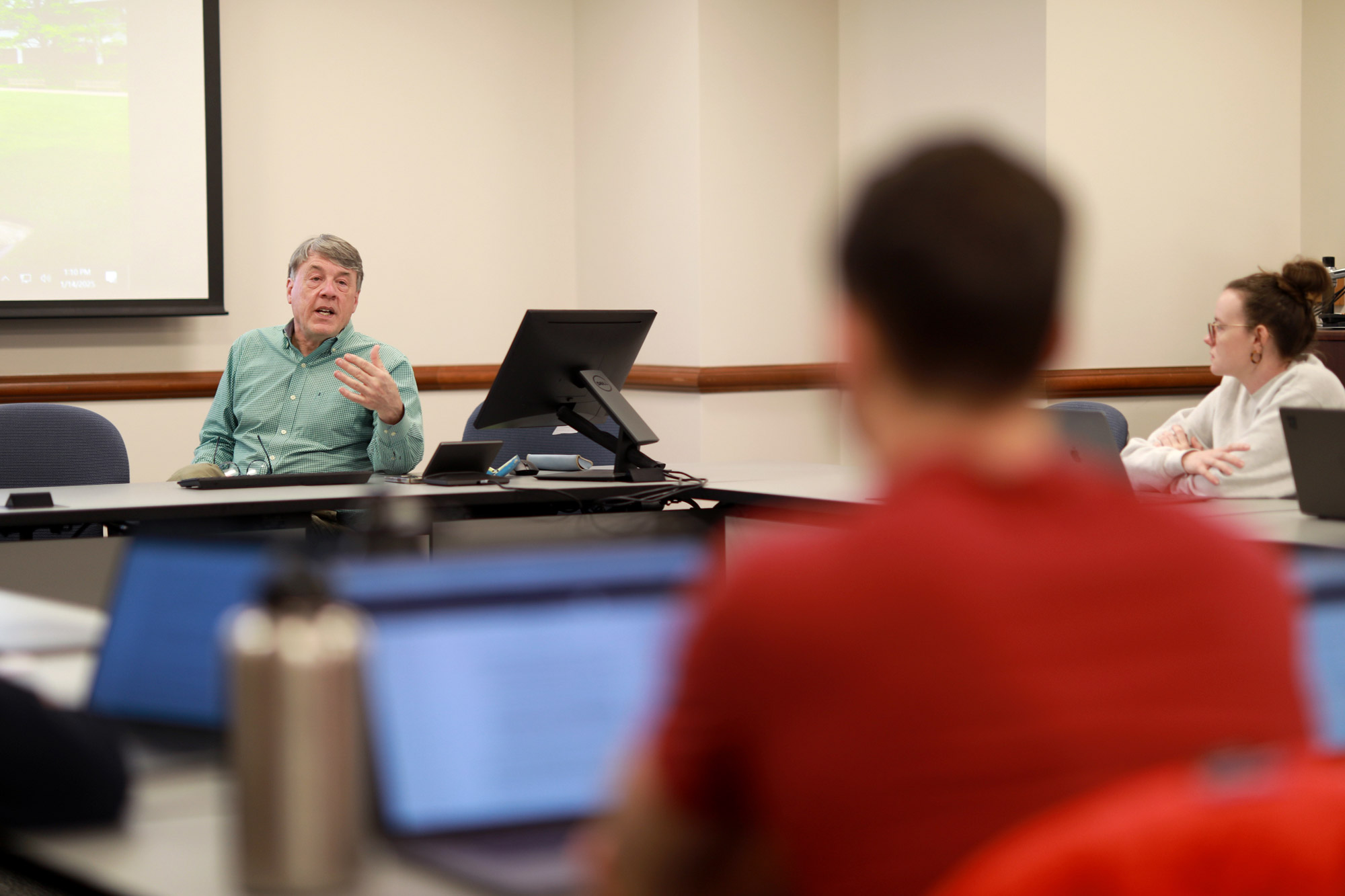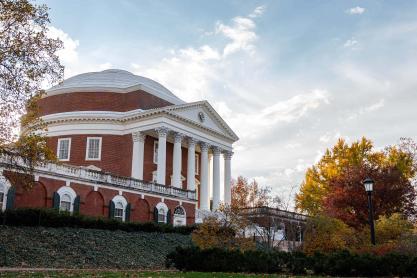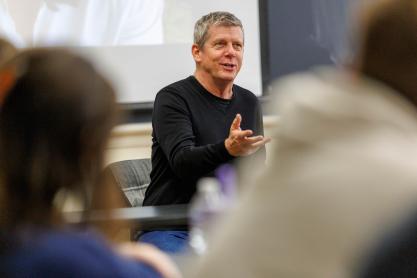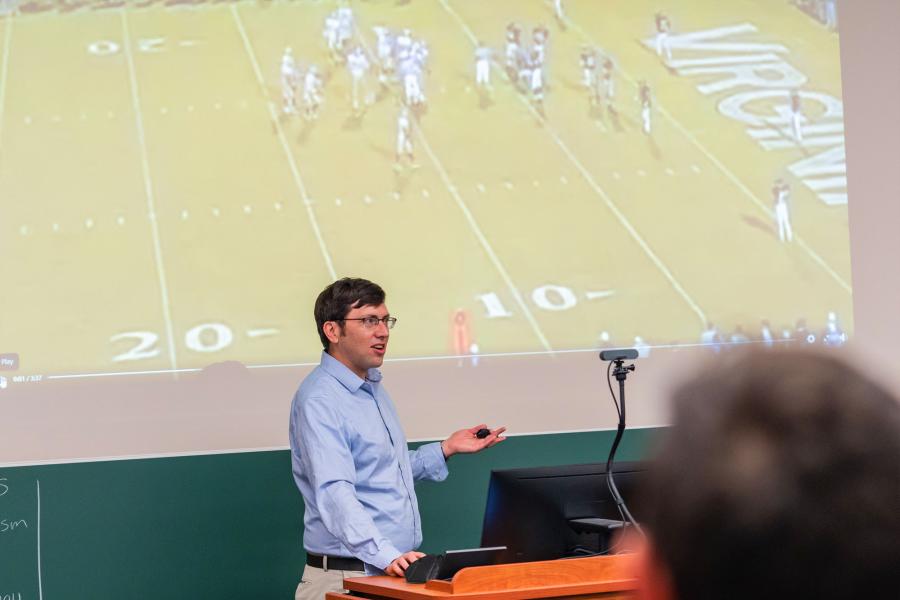Baseball is a national pastime, but it is also big business that has shaped key legal debates and transformed the economics of professional sports.
“Socially, baseball is a blend of emotion and of calculation,” professor John Setear told students in a recent class at the University of Virginia School of Law, describing how fans form loyalties because of family or geographical ties and businesses capitalize on these relationships.
The class he was teaching, aptly titled “Baseball,” has been offered as one of the UVA Law January term courses since 2010. The class explores laws shaping baseball and other sports, along with rule changes that impact play – making it likely the only course on Grounds where students take an in-depth look at both antitrust law and the infield fly rule.
Like many baseball fans who have thrown themselves into the game, Setear brings to the class a perspective shaped by both joy and heartbreak.
He grew up a devoted Cubs fan but his loyalty was tested in 1969 when his beloved team collapsed late in the season, paving the way for the “Miracle Mets” to capture the World Series.
“This broke my heart in a way only a 10-year-old boy’s heart could be broken,” Setear said.
He soon shifted his allegiances to the Cincinnati Reds – a fortunate choice given the “Big Red Machine’s” success in the 1970s – and later to the Baltimore Orioles. Now, he could probably best be characterized as a fan of the game itself.
“I love to go to the ballpark. I love to look at statistics,” he said. “And I just think it’s a wonderful game with a great history.”
Part of that history involves the law, which is where Setear’s course comes in. During the four-day course, he and his students discuss a wide range of legal issues that have influenced baseball, from intellectual property to contracts and labor law.
Setear spends almost half the class on antitrust law, especially the “reserve clause,” which for much of baseball’s history bound players to their original teams.
The class covered the book “A Well-Paid Slave,” which chronicles former St. Louis Cardinals star outfielder Curt Flood’s legal challenges following the 1969 season. Flood argued he should be granted free agency.

Setear leads a discussion during a session of his January term course. (Photo by Julia Davis, UVA School of Law)
Although Flood lost his Supreme Court case, the reserve clause was eliminated just a few years later, allowing player movement. This pivotal shift proved critical for professional sports, as labor disputes in baseball have helped shape the priorities of players’ unions in the NFL, NBA and NHL.
“The author spends a fair amount of time talking about the personalities of the people involved, what they’re like, how they act. One reason to do that is to make a more interesting book. But another reason to do that is because you think those personalities are what drove the outcome of the case,” he told the class.
Setear explained analyzing a “biography” of a case and case opinions can serve as a fun and uniquely insightful way to learn about a legal matter.
“It was interesting to see the regular case we read in law school and then really get to know who these people are as people and how they ended up in the Supreme Court,” third-year student Ryan Moore said.
Professional reasons – the firm he’ll join after graduation includes an MLB team as a client – and personal ones motivated Moore’s interest in the class.
“My father-in-law is a huge baseball fan, so this was kind of a crash-course way to get to learn about baseball and connect with him a little bit more,” he said.
While the class attracts students with a variety of sports interests, not surprisingly, many are drawn to it because of their passion for baseball.
Third-year student Matt Steelberg grew up in the D.C. area, cheering for his hometown Washington Nationals. He said he appreciates that Setear brought his love for the game into the classroom.










